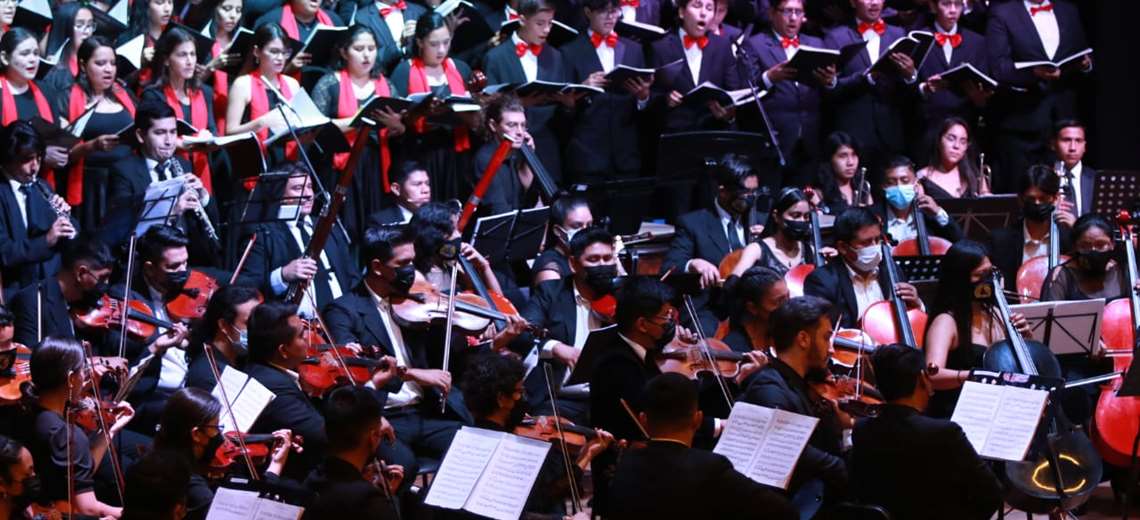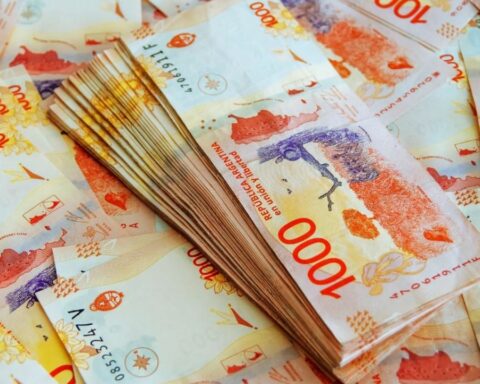The demand for the freezing of prices, the reform of the pension system or the increase in the minimum wage were some of the main demands of the most massive meeting this Sunday, convened by the Central Unitaria de Trabajadores (CUT), which brought together fifty of people in downtown Santiago.
The march began in the central Plaza Italia and spread through the Alameda with little presence of police officers, culminating in a musical show and an event in which several authorities participated.
The Minister of Labor, Jeanette Jara, announced that the increase in the minimum wage from 350,000 pesos to 400,000 pesos -proposed by the Executive weeks ago- will take effect retroactively from this Sunday, if approved in Parliament.
“Undoubtedly, Congress has all the powers to make the discussion, but we believe that it is a good sign to move quickly because this is a much-needed measure for people’s lives,” he added.
However, Minister Jara indicated that “it applies from May 1, that is, even if it takes a few days to process, its effect will be retroactive in terms of the first increase of $30,000 and the next increase that will to be $20,000 more on August 1, thus fulfilling the commitment of the first step of $50,000 from our Government”.
The president of the Constituent Convention, María Elisa Quinteros, also participated, who made a call to support the constitutional process that the country is experiencing, which began last year as a response to the massive protests for equality in 2019.
“We can now say that the new Constitution establishes that Chile is a social and democratic State of law and, with this, we are leaving behind the idea of a State with a subsidiary role,” he said of the new Magna Carta, which is in the process of being drafting and that still has to be approved in an exit plebiscite.
For his part, the president of the Central Unitaria de Trabajadores (CUT), David Acuña, highlighted the march for labor rights, given that “after two years we are meeting in the streets, we are looking at each other’s faces and we are hugging each other strongly.”
“We are happy, it is a special and particular day: after two years of confinement, meeting again here is very significant,” said the CUT leader.
Finally, he indicated that this demonstration also allows “to recognize the work of many colleagues such as health, commerce and transportation workers, who were fundamental in this pandemic.”
The march took place in a peaceful atmosphere although there were disturbances and a specific clash in the central neighborhood of Estación Central, between a group of protesters and several merchants that left two gunshot wounds, as confirmed by the Government.
The Undersecretary of the Interior, Manuel Monsalve, lamented that there are people injured by firearms, “particularly —he specified— on a day like today, where there are legitimate and natural mobilizations, and where criminal acts tend to seriously tarnish a day that should be a day to commemorate the rights and struggle of workers”.
Despite the fact that the demonstrations returned to the streets, the stamp was far from previous celebrations of May 1, which before the health crisis summoned thousands of people from north to south of the country.
Chile, which has had the pandemic under control for a month and a positivity rate of around 5%, now has fewer restrictions than ever since the arrival of the virus, with the possibility of holding massive events and without the obligation to wear masks outdoors.








